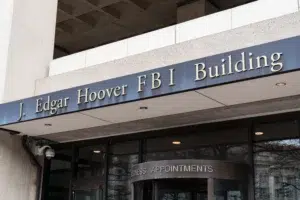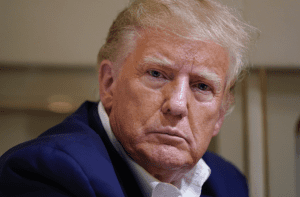Discussions in the nation’s capital and Illinois’ capital city are looking at how to address concerns about police accountability and equity in minority communities.
Conversations including officials from various public positions around Illinois follow the high-profile killing of a black man by a law enforcement officer in Minneapolis last month. George Floyd was laid to rest in Texas on Tuesday. His death sparked protests across the country. There was also civil unrest, looting and rioting in cities across the state and nation.
After the dust settled in Washington D.C. on Monday, Livingston County Sheriff Tony Childress was with President Donald Trump and other law enforcement from across the country. He provided suggestions, including mandatory de-escalation training for officers.
“A prohibition of all physical restraint maneuvers on or above the neck and any physical acts that restrict the flow of blood or oxygen to the brain,” Childress said.
Childress also said police should be required to provide medical aid and intervene when improper physical force is being applied. He said his law enforcement philosophy has always been about being a friend of the community and having accessible programs like “shopping with the sheriff” or “Halloween with the children.”
“Always being there as a listening ear for the community and working with the community,” Childress said.
In Illinois’ capital city on Tuesday, Gov. J.B. Pritzker was with a Black Lives Matter organizer, a state Senator, several Springfield aldermen, faith leaders and youth. He said the current moment provides an opportunity to “leap forward” on three issues.
“We could be the first state to get this right about investment in communities that have been left out and left behind, about police accountability, about criminal justice reform,” Pritzker said.
Little was discussed on criminal justice reform or police accountability during the event Tuesday, but Pritzker expanded on the need for more investment in “black and brown communities.”
“There’s been years, people call it disinvestment, but the reality is there hasn’t been any investment for so long, at least not enough,” Pritzker said. “It’s disproportionately not in favor of the black communities.”
State Rep. Chris Welch, D-Hillside, on Sunday at a large demonstration with Pritzker said $1 billion of investment would be a “starting point” to begin healing the decades of discrimination communities of color have seen in terms of state funding.
Pritzker urged youth organizers and others to “keep the pressure on” to make change rapidly.
“We know what that agenda fundamentally needs to be and that means that we’re very close to making real progress,” Pritzker said. “You expect a lot and a lot should be delivered.”










